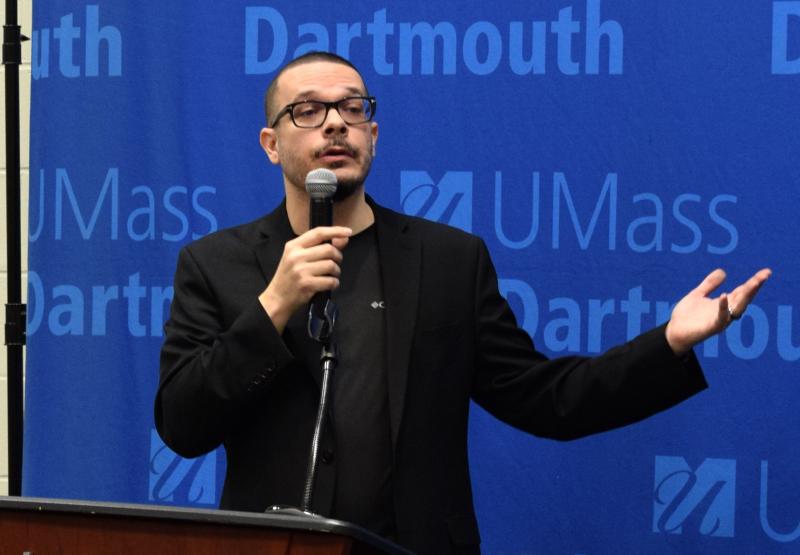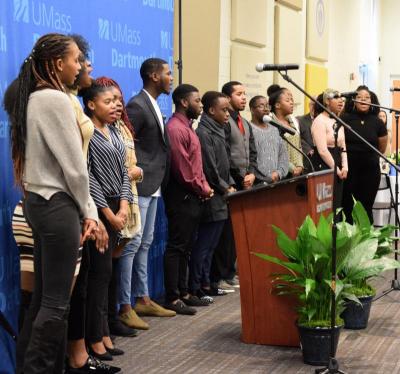Speakers highlight importance of getting involved at Martin Luther King, Jr. breakfast
For Shaun King, all it took to become involved in social justice activism was a single email.
The activist, writer, and journalist, speaking at the University of Massachusetts Dartmouth’s annual Martin Luther King, Jr. Breakfast, recalled the moment his entire mission in life changed in the face of injustice and racism.
That moment was in July 2014. Working at the time for a small green energy non-profit as its director of communications, he received an email from a friend containing a link to a YouTube video. It was the of the final moments of Eric Garner's life, as the black man was tackled and held in a choke-hold by police officers in New York City, which led to his death.
“I had never seen anything like that,” King said. “It really shook me up.”
King came from a background of activism. The Morehouse College graduate began his career out of college working in juvenile justice advocacy, but when his first child was born, he changed career paths into corporate communications for a more stable line of work to support his family.
That is, until he saw what happened to Garner. And Michael Brown, Tamir Rice, and Freddie Gray - all black men who died in police custody. The moment he saw that video, he quit his communications job at the green energy non-profit and took on social justice causes full-time.
He became personally involved in many of those cases, meeting with families, holding fundraisers, and writing extensively about the cases for online and print news organizations. But when justice did not come, he became involved in the Black Lives Matter movement, organizing protests and getting the word out about the cause.
He drew on an important lesson he learned from one of his college professors. Leopold von Ranke, an 18th century historian, created a chronological history of humanity, but made a critical error in analyzing what he thought was an upward trajectory of humanity.
“His mistake was confusing technological improvements with the improvement of humanity,” King said.
He explained that humanity is currently in a “dip,” owing in part to sky-high incarceration rates and the increased prevalence of racism in contemporary society. He urged those in attendance to get involved, organize, and advocate for change.
“The dip that we find ourselves in, it requires each and every one of us to fight back in the best way that we know how,” King said. “There will not be a single leader who will come and save us, there’s not just one thing you need to know, there are a thousand things we all need to do to find ourselves out of it.”
During the breakfast, university Chancellor Robert E. Johnson also spoke on the importance of Martin Luther King, Jr.’s work in advocating for change and education after opening with Langston Hughes’ poem Harlem.
“Dr. King spoke for the people Hughes wrote about, those whose dreams have been deferred and whose despair and anger threatened to consume them and spark violence,” Johnson said. “Despite their understanding anger and frustration, King always preached non-violence.”
He also stressed the importance of education, noting Dr. King knew that intelligence, combined with good character and service are the hallmarks of education.
“At UMass Dartmouth we strive to educate our students with both the skill set and mind set to ensure they are future leaders, innovators, and engaged citizens,” Johnson said. “We hope they will leave our campus ready to embrace change and ready to make change.”














